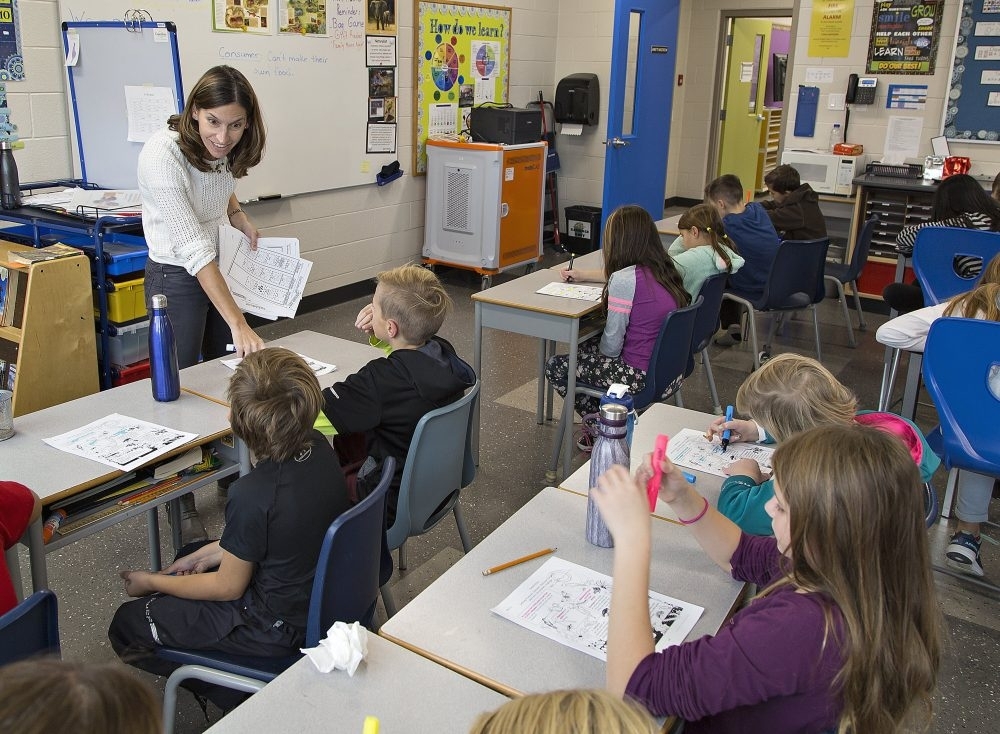Education
Parents Demand a Voice in Winnipeg’s Curriculum Changes

As the back-to-school season unfolds, parents in Winnipeg are raising concerns over their diminishing influence in educational decisions. Many families feel increasingly sidelined regarding what their children are taught, with significant implications for the community. In particular, contentious topics like Indigenous history, gender identity, and sexual education have become focal points of debate, often decided in closed meetings by school boards and provincial education departments.
According to a 2023 Fraser Institute survey, a striking 70 percent of Canadian parents expressed a desire for greater involvement in curriculum decisions, yet only 30 percent reported feeling included. This disconnect has led many to question the integrity of the public education system, which is designed to serve the interests of local families.
Changing Narratives in Canadian History
One of the most significant areas of concern is the evolving narrative around Canadian history. Current curriculum changes are shifting the focus away from traditional accounts of nation-building and influential leaders, placing greater emphasis on historical injustices such as residential schools and systemic discrimination.
While these topics are crucial for a comprehensive understanding of Canadian society, parents worry that an imbalanced approach may lead to a distorted view of the country. History classes should encourage critical thinking and provide a multifaceted perspective, rather than promoting a specific ideological stance.
The impact of these changes is already evident in Manitoba, where enrollment in private schools increased by 12 percent from 2018 to 2023, and the number of families opting for homeschooling has surged by nearly 20 percent. Many parents are withdrawing their children from public education, citing a lack of consultation and what they perceive as an ideologically driven curriculum.
The Need for Parental Engagement
The current climate starkly contrasts with the practices of the 1980s and 1990s, when curriculum updates involved public consultations and town hall meetings. Parents had opportunities to ask questions and provide feedback, allowing for a more collaborative educational environment. Today, many feel their voices are not only unheard but actively excluded from crucial discussions impacting their children’s education.
The consequences of this exclusion extend beyond parental frustration. Classrooms are becoming arenas of conflict, with teachers navigating politically charged debates without adequate support. Engagement should not equate to control; rather, it should foster a partnership where parents provide valuable insights that enhance educational outcomes.
Successful models exist, such as parental review panels implemented in several U.S. states, demonstrating that academic rigor and family engagement can coexist.
The implications of ignoring parental input are profound. Public education is most effective when it operates as a shared venture. When parents feel alienated, trust diminishes, enrollment declines, and community bonds weaken.
As the school year begins, parents in Winnipeg and across Manitoba are urged to advocate for their inclusion in educational discussions. Decisions regarding curriculum content should not be made in isolation but rather involve families who are integral to the educational process.
The future of public education hinges on transparency, collaboration, and a commitment to including diverse voices in the decision-making process. As these critical conversations unfold, it is essential to remember that while curriculum debates are inevitable, exclusion is not an acceptable outcome. The health of public education relies on the active participation of families, ensuring students receive a balanced and thoughtful education.
-

 Education4 months ago
Education4 months agoBrandon University’s Failed $5 Million Project Sparks Oversight Review
-

 Science5 months ago
Science5 months agoMicrosoft Confirms U.S. Law Overrules Canadian Data Sovereignty
-

 Lifestyle4 months ago
Lifestyle4 months agoWinnipeg Celebrates Culinary Creativity During Le Burger Week 2025
-

 Health5 months ago
Health5 months agoMontreal’s Groupe Marcelle Leads Canadian Cosmetic Industry Growth
-

 Science5 months ago
Science5 months agoTech Innovator Amandipp Singh Transforms Hiring for Disabled
-

 Technology5 months ago
Technology5 months agoDragon Ball: Sparking! Zero Launching on Switch and Switch 2 This November
-

 Education5 months ago
Education5 months agoNew SĆIȺNEW̱ SṮEȽIṮḴEȽ Elementary Opens in Langford for 2025/2026 Year
-

 Education5 months ago
Education5 months agoRed River College Launches New Programs to Address Industry Needs
-

 Business4 months ago
Business4 months agoRocket Lab Reports Strong Q2 2025 Revenue Growth and Future Plans
-

 Technology5 months ago
Technology5 months agoGoogle Pixel 10 Pro Fold Specs Unveiled Ahead of Launch
-

 Top Stories4 weeks ago
Top Stories4 weeks agoCanadiens Eye Elias Pettersson: What It Would Cost to Acquire Him
-

 Technology3 months ago
Technology3 months agoDiscord Faces Serious Security Breach Affecting Millions
-

 Education5 months ago
Education5 months agoAlberta Teachers’ Strike: Potential Impacts on Students and Families
-

 Business1 month ago
Business1 month agoEngineAI Unveils T800 Humanoid Robot, Setting New Industry Standards
-

 Business5 months ago
Business5 months agoBNA Brewing to Open New Bowling Alley in Downtown Penticton
-

 Science5 months ago
Science5 months agoChina’s Wukong Spacesuit Sets New Standard for AI in Space
-

 Lifestyle3 months ago
Lifestyle3 months agoCanadian Author Secures Funding to Write Book Without Financial Strain
-

 Business5 months ago
Business5 months agoNew Estimates Reveal ChatGPT-5 Energy Use Could Soar
-

 Business5 months ago
Business5 months agoDawson City Residents Rally Around Buy Canadian Movement
-

 Business3 months ago
Business3 months agoHydro-Québec Espionage Trial Exposes Internal Oversight Failures
-

 Technology5 months ago
Technology5 months agoFuture Entertainment Launches DDoD with Gameplay Trailer Showcase
-

 Top Stories4 months ago
Top Stories4 months agoBlue Jays Shift José Berríos to Bullpen Ahead of Playoffs
-

 Technology5 months ago
Technology5 months agoWorld of Warcraft Players Buzz Over 19-Quest Bee Challenge
-

 Top Stories3 months ago
Top Stories3 months agoPatrik Laine Struggles to Make Impact for Canadiens Early Season










